The Shadow of Divinity Cast Against A White Sheet: THE BEAUTY OF PSYCHE with A Fool's Enigma8/27/2018 It’s a messy world out here. People in positions of great wealth and authority are acting like dangerous and dangerously terrible infants. It’s getting more and more difficult to get behind the idea of any kind of authority at all. And it’s kind of difficult to accept stories about ancient deities these days. This is the modern world. Even our superheroes are mortal. J.J. Gatesman and A Fool’s Enigma Productions have found a really interesting approach to an ancient story of gods and goddesses with their retelling of the myth of Psyche and Eros. A teaser preview of Fool’s Enigma’s The Beauty of Psyche closed-out the Todd Wehr Theater for the Milwaukee Fringe Festival this past weekend. It looks really, really promising. Author/director J.J. Gatesman has streamlined the story into something simple and powerful: a love story. Abigail Stein plays Psyche...a charmingly clever intellect who has been taken prisoner by Eros...played here by Josh Decker. Stein’s beauty in the role is very down-to-earth. It’s the poetry of pragmatism that we see radiating from her...Stein has a delightful humanity in the role. Josh Decker’s end of the romance has him playing an Eros who is absolutely crippled by his own divinity. He’s completely out of touch with the mortal world...and maybe feeling love for Psyche has caused him to become curious about the whole mortality thing. It’s as frustrating for him as it is for her. Granted...it IS a love story that starts with a kidnapping, but in a way they are both captives of very different kinds. We first see Eros only in silhouette. It’s a very simple device: a single white sheet has his silhouette cast against it by a powerful light from behind. We first see his mother Aphrodite cast against it as well. It’s really remarkable how effective that is. Big-budget films can render amazing figures in very impressive CGI, but a simple silhouette projected against a white sheet in the intimacy of a studio theatre has a capacity for mystery that simply isn’t there in the dizzying detail of high-definition video in a multiplex. Compared to a sea of pixels, shadows against a single sheet can feel almost transcendentally organic. It’s so poetic: Divinity is a shadow on white linen. Not every god we run into in Gatesman’s staging is totally aloof. I adored Kellie Wambold’s intoxicatingly playful interpretation of the god Pan. She introduces the show with a greeting and opening narration in a bewildered rush of words. She’s real friendly. She’ll shake your hand and everything...tumbling across the stage in a childlike divinity that prefers to be closer to people. Wambold adds emotional warmth that serves as a pleasant path into a show that jumps right into the drama of love without much of any further introduction. Wambold’s warmth guides us to the right emotional place to embrace a love story between god and mortal. It’s not easy. Psyche can see Eros only in silhouette. He never tells her his name. Eventually Psyche DOES catch a glimpse of the face of Eros . . . and then things shift. Now we can see Eros in flesh, blood and three dimensions. He’s a god and he’s...a person just like anyone else (as all divinity is a reflection of humanity.) The problem is that he’s not mortal...so there’s that distance. Pulling the veil from the gods we are also able to see Aphrodite...and she is beautiful as played by Audrey Thompson-Wallace. . . but we see her as a divinely haughty entity who is weighted down by the ugliness of mortal pettiness. It’s not a depiction of the goddess that I’m particularly fond of, but it works within the structure of the story and Thompson-Wallace sells it with an emotional chill approaching absolute zero, so it’s a very stylish rendering. It’s my understanding that in the original story, Psyche possessed beauty that caused people to worship and make offerings to her and NOT Aphrodite. Naturally she was a bit upset about this. Without a vivid representation of this onstage, the jealousy that drives the character in Gatesman’s adaptation seems to compromise the character’s divinity. The goddess of beauty should not bear the ugliness of petty jealousy. It feels weird. Be this as it may, Gatesman’s streamlined script feels very primal and Aphrodite’s pettiness is only visible once the veil has fallen from divinity and we see her and Eros in three dimensions. There’s real poetry in this. When the veil falls from the shadow of divinity, we see everyone for who they truly are. It’s a really clever effect. Pan’s divinity is drawn from wild impetuousness so she’s going to live on our side of the veil, but Eros and Aphrodite can only be truly seen once the veil falls. There's also an original score for the show written by Amanda J Hull and Cole Heinrich. In keeping with the streamlined nature of the rest of the show it is simple, primal accompaniment to an engaging romance. The preview that ended the Fringe Fest for Todd Wehr was only a portion of a show which will be staged in a much cozier space. I’m really looking forward to the opportunity to see the full show in the UC. J.J. Gatesman’s The Beauty of Psyche gets a full staging next week at the Arcade Theatre in the Underground Collaborative. The show runs Sep. 6 - 15. For more information on this and more coming to the UC, visit the Underground Collaborative online.
26 Comments
This past weekend, Theater Red opened Writer/Director Angela Iannone’s historical drama This Prison Where I Live. The lovingly-researched drama focuses on a late 19th century actor who survives an attempt on his life while performing onstage. It’s a briskly-paced drama with two men at the center of a small ensemble on an intimate stage. Think of it as a Historical Buddy Drama Because of the nature of the people involved, it’s easy to get bogged-down in the weightiness of the history behind the play. Strip it of everything else and it’s the story of an actor haunted by the uninvited ghost of his late brother...who was also an actor. Iannone’s script works really, really well as a family drama centered on two people. That one of them happens to be dead gives the story a bit of intriguing depth. The ghost is, among other things, trying to keep his living, breathing sibling alive and well. The living brother would far rather be spared the presence of his late brother...partially because he’s annoying but mostly because he killed President Lincoln. Cory Jefferson Hagen is a delight as John Wilkes Booth. He radiates gentlemanly southern charm in the role of a very passionate man. Corey Jefferson Hagen plays with clever intricacies of characterization in the role of an actor who might have been far too self-confident to ever become truly great, but possessed a magnetic charm that awarded him great adulation. There’s a gentlemanly lack of restraint in him that edges on the sociopathic, but he cares deeply for his brother. Corey Jefferson Hagen does a brilliant job of rendering all the subtleties of one of U.S. history’s greatest villains. Jared McDaris deftly wields precision and perfection in his portrayal of the brother haunted by the ghost of an assassin. Edwin Booth was a legendary actor in his own right with tremendous and heroic dedication to a life in the theatre. McDaris plays a haunted man with relentless focus tempered by passion. McDaris and Hagen have a quick chemistry about them that propels the dialogue. The two actors manage to render a great familiarity between the two actors they are portraying. There’s clever wit to their verbal dueling that expresses a great affection through constant tension. It’s great fun to watch. Marcee Doherty-Elst lends support to the family dynamic as Edwin’s wife Mary. She’s haunted too, but not by any visible ghosts. Trauma has left her something of an earthbound ghost herself...just another figure to haunt Edwin. Doherty-Elst glides across the stage in an affectionate haze that feels disturbingly lifeless at the core. There is some suggestion of deeper darkness in the script as John strongly suggests that Edwin distance himself from her. There’s a kind of dormant menace in Doherty-Elst’s portrayal of Mary’s love for Edwin. It adds a great deal to the dramatic dynamic of relations between the two brothers. Brandon Haut makes a single appearance onstage as an admirer of Edwin’s who wishes to engage him in conversation. Plagued as he is by the ghost of his brother, Edwin is scarcely in the frame of mind to entertain conversation from a stranger. Things get rather conversational without ever being entirely uncivil. That there is tension at all in the scene shows a great deal of finesse on Haut’s part. He’s a very calm man, but there is a machinery beneath it all fueled by a passion that Haut wields quite well. Andrea Burkholder rounds-out the cast as the vision of Edwin’s first wife. There’s sweetness and concern in her presence, but she is elusive. Iannone keeps the pacing of the drama slow and soulful throughout. There are a few moments of slightly stiff dialogue here and there, but the overriding presence of the drama feels quite authentic. Where there is unintended stiffness, it might be due to a dizzying amount of detail and symbolism Iannone has carved into the drama. Iannone crafted this thing like a Swiss clock, which sometimes runs the risk of approaching a kind of unintended soullessness. Thankfully (and no doubt by design) the thematic and historical intricacies of the script are largely ticking around in the background of an otherwise thoroughly satisfying fraternal drama. There are A LOT of things moving around in the script thematically that would be far too easy to get lost in, but at its heart, this is a really engrossing drama about a man and the ghost of his late brother. Theater Red’s This Prison Where I Live runs through Sep. 9 at the Tenth Street Theatre on 628 N. 10th St. For ticket reservations and more, visit Theater Red online. There's a really talented actor who left Milwaukee for New York some time back. Evidently he thought the idea of a Milwaukee Fringe Fest was kind of funny. He'd joked about in social media. In Milwaukee it’s ALL fringe. (Is what he said.) And he’s right, of course...but there’s something really cool about a formal fringe festival that celebrates the ephemeral aspects of theatre...someone’s onstage for about an hour and then they’re gone. There's no extended promotion for any one show on the festival. It's presented as a big temporary gallery of work. There's no opening and closing. No extended run. There’s only the moment. Only the performance. This year the festival opened its Todd Wehr Hall shows with (among others) a trio of one-person pieces. John Schneider’s Where or When was a touching tribute to the tragic life of composer Lorenz Hart had him accompanied by pianist Connie Grauer, One piano aside, yesterday Todd Wehr played host to a consecutive trio of intimate exchanges between a single performer and a small audience. Schneider received a standing ovation. He was followed by stage veteran Elizabeth Fuller in Survival--an aphoristic, little piece in which she played three different characters...one of them being Elizabeth Fuller. The most interesting experience on the first evening for me was Tyler Anthony Smith’s Mein Comps. Smith plays an aspiring New York actor named Adolf Moira Angela Hitler. Smith crafts a character who is touchingly out of synch with the rest of the world. He's a dreamer who has lost touch with reality in favor of cuddling with his own ego. Smith’s work is fascinating to me. The rest of the audience loved it as comedy. I loved it as drama. The Todd Wehr was electrified with laughter, but...honestly I didn’t find it at all funny. I might have been the only one in the entire theatre who wasn’t laughing, though. So by the standards of the audience in question, he's objectively funny. But I didn't laugh. But I loved the show. I’ve never been so captivated by a comedy that I didn’t even find remotely funny. It would be understandable for me having missed the humor everyone else was enjoying if I had found it offensive. Honestly...seeing a guy play a character engaging in simulated phone sex with Mike Pence on a stage that usually plays host to children’s theatre...yeah...I could see how someone might be offended. I wasn’t, though. I can separate the performance from the venue while respecting the strange novelty of it. It would be understandable for me having missed the humor everyone else was enjoying if it wasn’t my kind of humor. That wasn’t the case either, though. Adolf Moira Angela Hitler reminds me of an exaggerated version of various characters one might have expected to see on Kids in the Hall and I DO like Kids in the Hall. And it’s not like the humor that Smith was putting on the stage felt overly derivative of the old sketch comedy show (or anyone else for that matter. It’s quite unique in fact.) Regardless of what it was that kept me from laughing at Smith, I found myself wanting everyone else to laugh at him. I felt like there was a part of me cheering for him to be funny...which is weird because I’ve never even met the guy and he’s from out of town so there’s no connection there. I'm not so strangely altruistic to want him to do well because he's onstage or anything like that. But I cared about the character because Smith was admirably vulnerable in the role. A good portion of comedy is simply getting an audience to like you...and I really do like the character of Adolf Moira Angela Hitler. Throughout the show, he’s making exceptionally bad decisions and he’s doing so in a way that feels so crushingly human. So an audience identifies with that and WANTS him to be successful even as he makes mistake after mistake. So on a dramatic level, Adolf Moira Angela Hitler works even if his humor doesn’t. That says a LOT about Tyler Anthony Smith as an actor...that he’s able to construct a character who might be a little abrasively annoying and turn him into someone the audience actually cares about for about an hour or more. For me this was a big reminder of the importance of a fringe festival. Yes...everything in Milwaukee is more or less “fringe” unless it’s a big-budget touring production or one of the top-tier UPAF groups, but . . . the atmosphere at a fringe fest makes it really easy to go in and see a comedy that isn’t funny...and actually end up loving it in spite of that. It’s one performance on one stage for one moment. Then it’s gone. You engage with it as more of a theatrical event. You’re more open to enjoying something that you might not otherwise give much of a chance. You see things differently because things look different from the fringe. The Milwaukee Fringe Fest continues through today at the Marcus Center. For today’s schedule and more information, visit the Fringe Fest online. Milwaukee Opera Theatre pays homage to early 20th century pulp action heroes with the two-act musical Doc Danger and the Danger Squad. A group of super-heroines based on old pulp heroes square-off against a villain with the ability to warp reality in another action-based Jason Powell musical. Pulp Action Anthology--The Musical! Act One opens as a very charming Harper Navin plays a little girl reading an old action pulp fiction anthology magazine. Songs alternate as three different storylines are joined by a fourth in a nearly all-woman musical tribute to pulp action heroes. (On a personal aesthetic level, this is very appealing to me. Super-heroism always made more sense to me coming from a woman. Even growing-up reading Marvel comics as a kid in the ‘80s, my most reliably favorite hero ended up being Rachel Summers.) There’s a really nice episodic rhythm to the action as one scene follows the next. An Avenging Pulp Justice League of Extraordinary Women Under the direction of Jill Anna Ponasik, Powell’s transfer from pulp-era super heroes to operatic super-heroines is fairly dazzling. Stephanie Staszak is Jesai of the Jaguars--a jungle girl inspired (as all jungle girls were) by Tarzan. Staszak has a strong nobility in the role. She squares-off against Ana Gonzalez as the suitably sinister Beetle Queen. A bright-yellow-haired Carrie Gray plays space cowgirl Satellite Sally. She’s goes on adventures with Hannah Esch as Clare de Lune: her long-suffering sidekick who does all the dangerous work. In one of the most appealing songs of the show, the two “Cowgirls on the Moon” sing about Flash Gordon/Lone Ranger-style adventures. Gray manages a few sweet romantic moments with charismatic Sean A. Jackson as a composer who is being held captive by the arch-villain. Becky Cofta gets a few interesting moments as Clare and Sally’s nemesis, the lunar desperado Penny Dreadful. Like so many others in the ensemble, Cofta doesn’t get nearly enough time to explore an interesting pulp archetype transferred to the musical theatre stage. Briana Rose Lipor plays the title character--a brilliant scientist and superhuman adventurer modeled after Doc Savage. Lipor is inspiring as the heroine. Doc Savage never appealed to me as a character, but with Lipor playing a charismatically campy musical theatre iteration...it actually makes a lot of sense aesthetically. Erich Welch plays Doc Danger’s nemesis Professor Z. He has sort of a towering Tim Curry-like presence onstage as he carries around a plush cat...the way you do when you’re an evil super-villain. Welch makes a tired, old stereotype feel fresh...aided as he is by a sharp, little bit of political satire written into the script by Powell. Rae Elizabeth Pare rounds out the central heroic cast as The Lady In Black. She’s the silently mysterious heroic persona that had been pioneered by The Shadow and then popularly ripped-off nearly a decade later by Batman. Once again, she’s my personal favorite in a musical ensemble populated with a LOT of talent: Rae Elizabeth Pare is irresistibly stylish as she’s slyly smiling in the role of the dark detective who brings the team together to defeat the sinister Professor Z and his menacing android (played by Melissa Anderson.) The Shift After Intermission Act Two opens as Harper Navin plays the kid reading the pulp magazine returns to “real life” and runs into the same personalities twisted into a more contemporary office setting. (Melissa Anderson isn’t a robot anymore...she’s a mother...) So maybe she’s just imaginative but maybe there’s something far more sinister going on here... It Needs More Room to Breathe Doc Danger would be really, really satisfying as a trilogy. Or it would make for a very tightly-drawn duology. As a single two-act show...it’s pleasantly bewildering and a lot of light fun that only drags a little in Act Two. It’s so cool to see women in a musical theatre adaptation of The Shadow and Tarzan and Doc Savage and Buck Rogers stories. Each one would be cool enough on its own, but here they’re all teaming-up, which is that much more enjoyable. It’s a big, sweeping crossover between sub-genres. Like any superhero crossover, though, there’s never enough time for any one character. In a departure from the standard convention of the genre, the first act ends on a cliffhanger that isn’t directly picked-up after intermission. And though it’s really obvious what’s going on as the story shifts from the pulp era to the modern era, the second act drags as we are introduced to reiterations of characters we were already introduced to in Act One. It feels a bit repetitious to be introduced to them as other characters. The overarching storyline between the pulp world and the world outside it is genuinely interesting, but the pacing feels wrong. Oddly enough, it wouldn’t feel like the Act Two was dragging if it was expended into a sequel. What happens after intermission feels more like a second episode and less like a second act. We really need more time between these sections of the mini-saga. One intermission isn’t enough. A Doc Danger duology would expand things quite nicely. Each character could have her own signature musical genre (Jesai could be rock’n’ roll. Satellite Sally could be classic Roy Rogers-style singin’ cowboy. The Lady in Black’s musical presence could sound like a Danny Elfman musical and so on...) The story would have more time to explore both the concept of a heroic musical action pulp anthology genre before marching off into an exploration of what the modern world does to potentially heroic people. A trilogy would allow for a progression from fantasy to reality to the proper heroically balance between the two. It’s a bit extravagant to think of a show like this as a trilogy...I mean...it’s pretty miraculous that a musical tribute to action pulp heroes of the early 20th century even exists...let alone that it would be able to spread out over three feature-length parts. Jason Powell and Milwaukee Opera Theatre have done an admirable job of bringing something like this to the stage. Pulpy super-heroism tends to inspire that kind of starry-eyed over-the-top imagination. So I think I can be forgiven for ending this one on the fantasy of spending more time at the small stage with Doc Danger and her friends. Milwaukee Opera Theatre’s Doc Danger and the Danger Squad runs through Aug. 30 at the Broadway Theatre Center’s Studio Theatre. For ticket reservations, visit Milwaukee Opera Theatre online.
Milwaukee Irish Arts returns to the theatre tent at Milwaukee Irish Fest this year with a few more offerings. Of particular note is a two-man comedy show written by noted Irish-Americans Frank and Malachi McCourt. The autobiographical comedy show involves the memories of a couple of guys who grew-up in Limerick, Ireland during the Great Depression. Milwaukee Irish Arts brings the show to a cozily shady tent amidst the lighthearted, boisterous celebration of Irish Fest courtesy of a couple of seasoned local actors: Brian Faracy and Dylan Bolin. In addition to playing the two brothers, Faracy and Bolin play a number of characters, donning and discarding various bits of costuming in a breezy, little poetic comedy that occasionally dwells in some pretty deep moments of drama. Faracy plays the younger of the two brothers who were born only a little over a year apart. (They’re essentially the same age.) Faracy holds some of the more serious end of the dramatic moments . . . rendering them with soulful depth. For the most part, though, he’s there as some of the comically overarching authority that the boys had to contend with growing-up. He’s a rather severe priest and a very domineering grandmother. His comedy is at its best in subtle moments, though. At one point, young Frank has a rather unfortunate experience with his first communion and is carted off to a Jesuit priest’s confessional to find out what can be done about it. Faracy is charmingly nuanced for a few seconds as the highly-educated priest who is forced to put up with the burden of being an authority. An interesting contrast to this has Faracy (who is a very respectable Financial Advisor with 25 years of experience in his day job) as a comically cheerful life insurance salesman in an era when not being insured meant not having the money to get buried on consecrated ground and hence...unable to make it into heaven. Very darkly humorous stuff. Towering Dylan Bolin plays young Frank and a variety of other roles. Bolin has great comic instincts that play to the more openly funny end of a script with some rather cleverly poetic humor. Bolin can be a very physically imposing presence onstage. It’s fascinating to see this big, imposing figure onstage in the service of a character growing-up poor in a small town during the Great Depression. He’s sheepishly lost in a bewildering maze the mixes childhood with poverty in a society that’s struggling to scrape its way into the middle of the 20th century. There’s genuine charm in Bolin’s time onstage...even when he’s playing a clueless politician who can’t seem to get logic to connect with much of what he’s saying . . . it’s harrowingly difficult to get that to come across comedically in the current US political climate, but Bolin makes it fun. Bolin and Faracy work well together. It may be light comedy, but it’s very, very difficult to bring the material together onstage successfully without maintaining an earnest connection between the actors. They’re playing brothers in a two-man show written by those brothers. Director James J. Gallagher has doubtlessly helped to foster a genuine professional connection between the two actors that serves as a really good foundation for the dizzying spin of characters rushing through memories of a childhood neither of them really shared. That genuine energy onstage animates a poetic comedy that is quite lyrical in places. If you get a chance, hang out with a couple of Blaguards in a place somewhere between comedy, drama, song and memory. It’s a nice spot to be found in amidst all the song, dance and celebration of the rest of the fest. A Couple of Blaguards runs in rotation with a couple of other Milwaukee Irish Arts shows in the Theatre Pavilion at Irish Fest this year. There are two more performances: Noon today and 4:30 pm on Sunday. Included in the mix are Nate Press and Becky Cofta in The Good Father...a sweet romantic drama about a couple of people who meet at a New Year’s Eve party...kind of a fun two-person show with two great actors. I’d seen it staged at the Irish Cultural Heritage Center in the past...amazing show. For a complete listing of dates and times for these shows and more, visit the Theatre Pavilion schedule for this year’s Irish Fest. Patrick Schmitz turns a lovingly satirical eye towards Shakespeare once more this weekend with his production of The Comedy of Macbeth...Kinda Sorta. The breezy evening of comedy has heart, passion and even a little serious drama mixed in and amidst the spoofery for a roundly enjoyable trip to a fun, little studio theatre space by the highway. A talented cast works with a few props and costuming elements and a few moments of dramatic scoring in the intimate space of the In Tandem’s Tenth Street Theatre for a single weekend’s run. Schmitz’s script follows an abbreviated form of Shakespeare’s tragedy more or less exactly . . . and that means establishing the mood with the three witches at the top of Act One. Witch-based comedy for Macbeth could go in a lot of directions. Schmitz decides to bring the mysterious women down-to-earth as a trio of sisters making the best of a...weird...situation. Their father was a goat and everyone looks at them funny. Laura Holterman plays comically reluctant witch to the more motivated Stacy Pawlowski and Liv Shircel. The interpersonal dynamic between the three of them is echoed throughout the ensemble in nearly every scene. There’s a real emotional heart to the center of even the silliest, most superficial punchlines, which has grown to be something of a Schmitz trademark over the years. Beth Lewinsky and Robby McGhee play to the center of the heart of it all as Lady Macbeth and Macbeth. The two towering dramatic characters are given the same casual, earthbound comic treatment as everyone else. Here Schmitz seems to be drawing pretty deftly casual observational moments from his own marriage. It’s all too easy to get lost in the epic-level ambition and malevolence. It’s nice to see Macbeth and Lady M treated as more of a standard married couple. Lewinsky and McGhee have been working together in Milwaukee comedy for long enough over the years that there’s a genuine familiarity between the two of them that adds considerable depth. Lewinsky is allowed a whole range of emotions to work with from love to caring and concern to genuine joy...all of it shining through the set-ups and punchlines that are all delivered to the stage with admirable soul and precision. Other local comedy veterans in the cast include Tim Higgins as a nuanced Macduff who has the opportunity to play to a number of different comically awkward moments and Kris Puddicombe as an old man cut from the original script who mentions something about a seahorse that everyone keeps talking about. (A recurring joke with a visual gag at the end of the show. Oddly enough one of the few visual gags in a show with a modest budget.) There may not have been much of a budget, (it’s something that they joke about) but there WAS enough to pay for little Scottish flags which seem to be up more or less everywhere. The one other bit of Scottish flavor in the production comes in from a couple of very, very heavy Scottish accents from Nicolo Onoroto and Rich Laguna as the Scottish noblemen Ross and Angus. The two actors render the spirit of the masses to the stage with clever comic instincts. My favorite bit of characterization around the edges of the production had Hayley San Fillippo and Josh Decker as a couple of Guards and (later on) a couple of hired Murderers with real hopes, dreams and aspirations beyond their day jobs. The guards are aspiring screenwriters. The Murderers really want to get their rock band back together. We see the ambitions at the center of the comedy echoed in those two characters playing those four characters. San Fillippo and Decker are extremely cute. They give their little quartet of characters some genuine charm to round-out the play. (And...uh...oh yeah: Marcus Beyer plays Banquo. He’s cool, too. As charismatic as ever. There’s a romantic thing between him and one of the witches. It’s funny.) Once again, Schmitz puts together a fun Shakespeare spoof. With all the Shakespeare that goes on over the course of a summer, it’s nice to end it with one of these. Thanks again Patrick. Schmitz ’n Giggles The Comedy of Macbeth...Kinda Sorta runs through Aug. 11 at the Tenth Street Theatre on 628 N, Tenth St. For ticket reservations, visit Brown Paper Tickets online. The darkened Alchemist Theatre bar is that much darker this month courtesy of the dark show onstage next door: Emerald Condor’s modern ragtime horror The Flesh Trade. The big premiere of the show last night was sold-out. A full crowd packed into the intimate space to see Kendall Yorkey struggle to get out of the tiny old western town of Tombstone in a sinister comedy of surprising depth. The Mood Scenic Designer Aaron Kopec establishes a tight, little atmosphere for the western horror. The stage is populated with elements which lock-in the feel of a turn-of-the-century brothel. Showtime comes near and there are a few hoots from the audience as the three dancers take their places in full burlesque costume. The music starts. Honey (Kendall Yorkey), Sugar (Ami Majeskie) and Candy (Katie Katschke) launch into the opening number: “One Horse Town. It’s easily one of the catchiest tunes in the show. (As it is a world premiere with songs no one has ever heard before, it’s a cool bit of promotion that Emerald Condor is providing some of the original score on Bandcamp.) Yes: It’s A Horror Musical So it’s a musical horror comedy. Yorkey plays a dancer named Honey who wants to get out of town. (That’s her singing lead on “One Horse Town.”) If he’s going to be able to escape, she’s going to need to provide human meat for a sinister survivor of the Donner Party. (Nick Firer is great here--he knows how to play a pulpy, homicidal villain without chewing the goddamned scenery all to hell. Most villainous Hollywood actors are paid much more to do much, much worse.) So okay so it’s a horror musical. There are cute, little references to other musical horror shows. The brothel where the girls do their thing is on Fleet Street: a nice tip of the hat to a certain murderous musical barber from the other side of the Atlantic. One of the nicest guys in the show is names Seymour. This isn’t any little shop, though and they aren’t looking to feed a hungry plant: The villain is forcing Honey to provide human meat for himself and his associates. Seymour just might end up on the menu...with much of the rest of the cast. (It’s a small town on the small stage and the Donner Party has a rather large appetite.) It’s A Lot Deeper Than Six Feet, Though There’s a kind of genius to Michael Christopher’s show--a show he wrote, directed and composed the music for. This is the first ever production of a musical that I would LOVE to see get take off into a million other productions all over the country. It’s sneaky. On one level, it’s just a ghoulish, sexy little horror comedy with cheery ragtime that’s been bent into the darkness...but it’s got a depth that sneaks-up on you like the grave and pulls you under. Christopher plays with allegory in the show...hell: even the titles an allegorical play on words. This is a grungy small-stage version of Hollywood’s cinematic old west. Honey and her colleagues Candy and Sugar are the lowest end of the socio-economical ladder. They’re single women. They can’t vote. They’re in a stigmatized profession so no one’s going to believe anything they say. It’s an amplified look at life on the bottom of the heap. In modern terms this is like...99% of the population, though. We are ALL Candy and Sugar and Honey...all desperately trying to escape the oppression of a system that only really rewards the people who already have everything. In addition to largely playing the Donner Party, the guys in the cast play a middle class that can only pry on those (sometimes literally) beneath them. It’s an ugly, ugly world that Christopher renders here, but there IS a kind of beauty to it. And maybe all we can do is try so desperately to claw our way out of the filth. And in this respect, The Flesh Trade is oddly inspirational. Honey is a survivor--a horror ant-hero who casually drinks strychnine because it’s what she grew-up drinking. I don’t want to give it all away, but the allegorical symbolism gets pretty thick if you really want to go swimming in it at the bar after the show. Beauty Is Filth. Filth Is Beauty Christopher and company have found something really deep and beautiful in that which is generally considered to be lightly trashy culture. There’s belching. There’s pole dancing. (Seems a bit anachronistic, but Christopher gives a nice, little history lesson via a dialogue between Honey and Candy. A quick check on wikipedia corroborates. Yes: there WAS pole dancing in the old west.) Some of the best songs in the show make reference to bestiality, cannibalism and menstruation. Christopher keeps hammering into vulgar imagery throughout the dialogue. In over 100 shows in over a decade, I’ve never once heard a reference made to a merkin. Thanks to The Flesh Trade, I’m sure I’ve heard at least a dozen such references... We all identify with this, though. We’re all searching for beauty while swimming through the vulgarity of modern society, right? Or maybe we’re looking for beauty IN that vulgarity. Christopher identifies this and uses it as the central force animating it all. In our own ways, we are all trying to claw our way out of the filth of a little town called Tombstone. And like Honey, we might have to do a lot of ugly things in order to reach the beauty beyond Tombstone. Emerald Condor’s production of The Flesh Trade runs through Aug. 18 at the Alchemist Theatre on 2569 S. Kinnickinnic Ave. For ticket reservations and more, visit www.thealchemisttheatre.com. A concise review of the show runs in the next print edition of The Shepherd-Express. |
Russ BickerstaffArchives
July 2024
Categories |

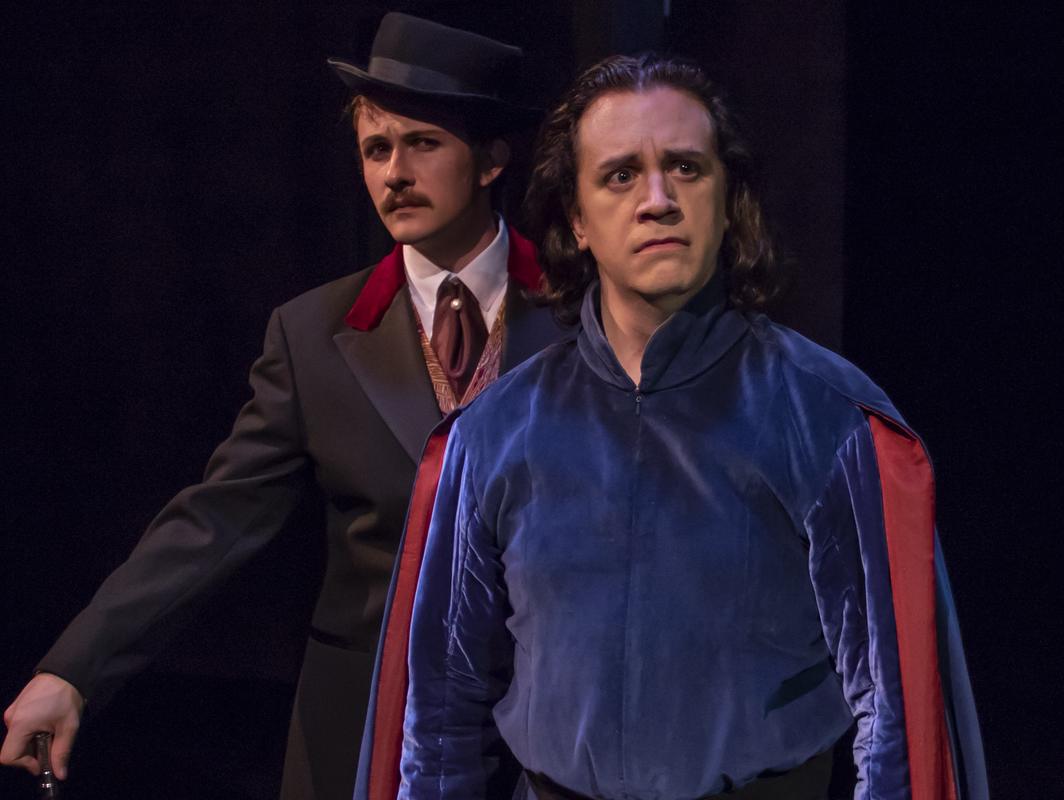
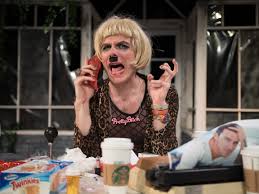
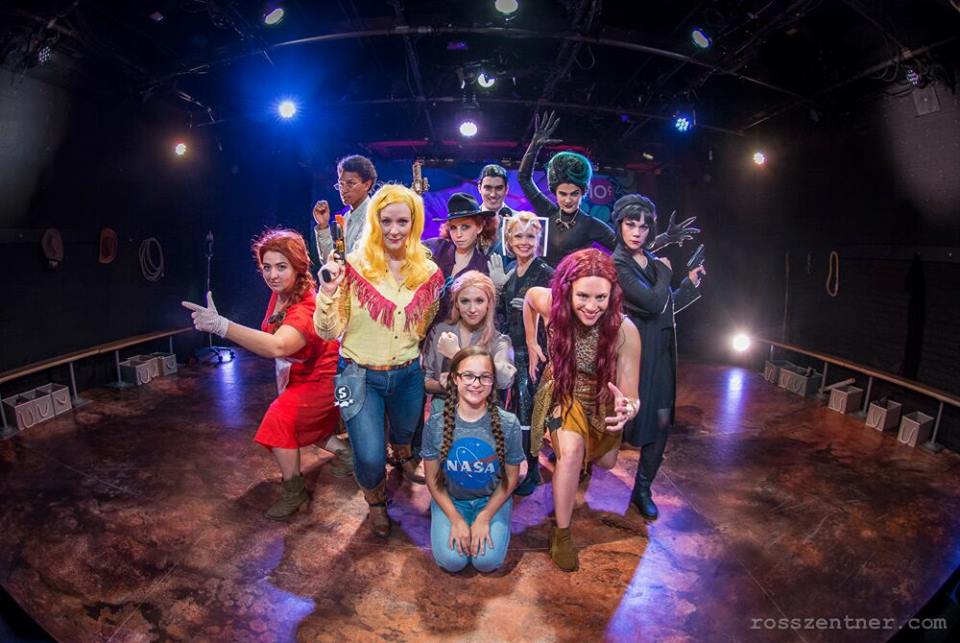



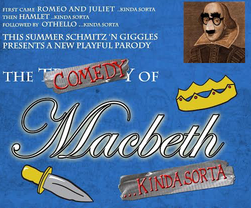
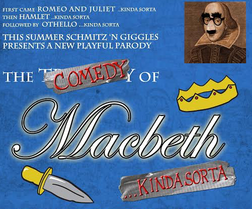
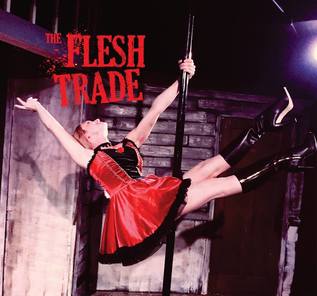
 RSS Feed
RSS Feed
